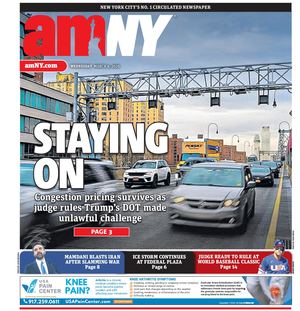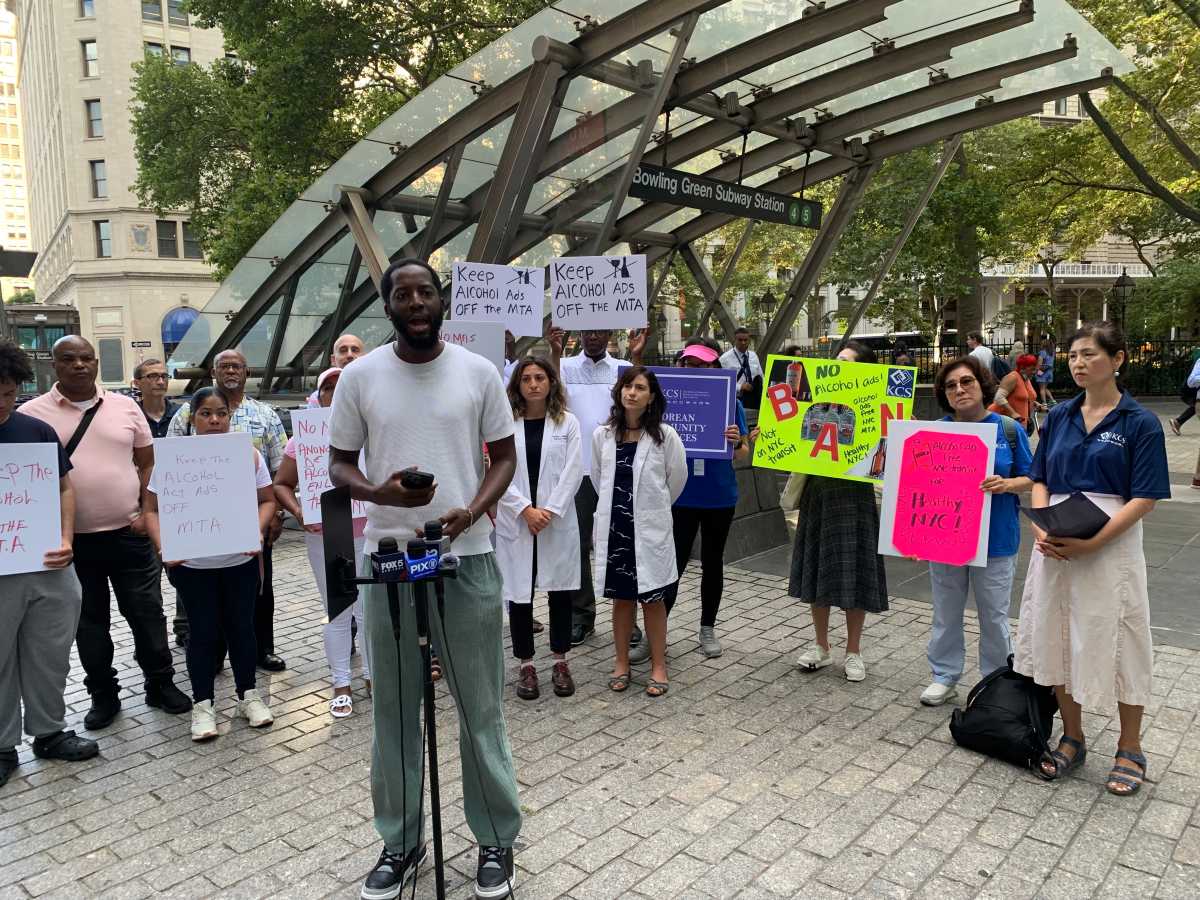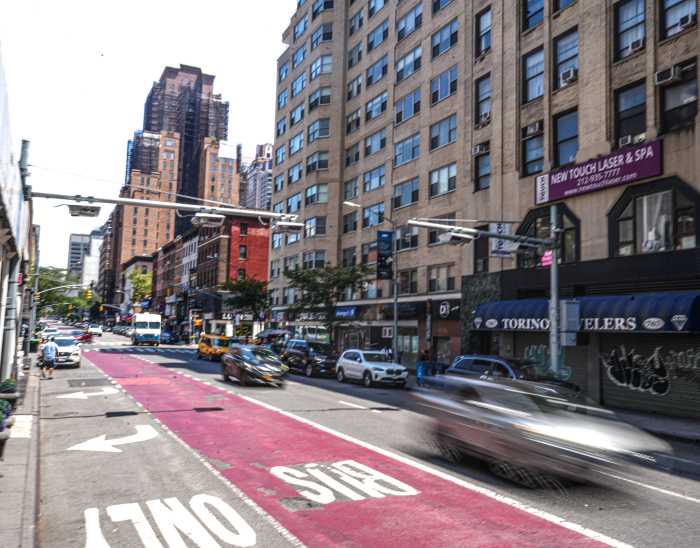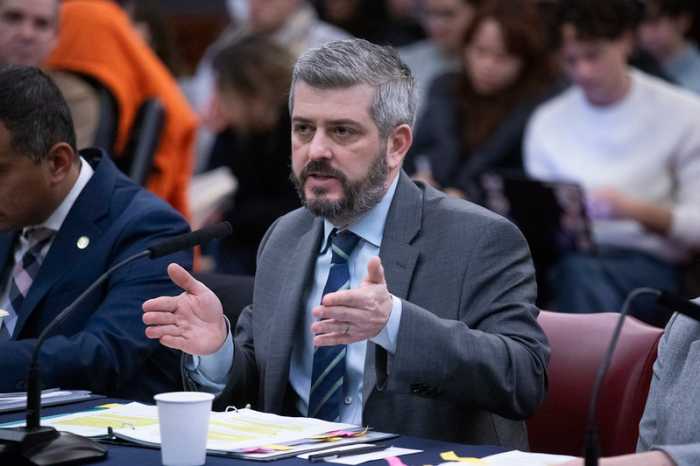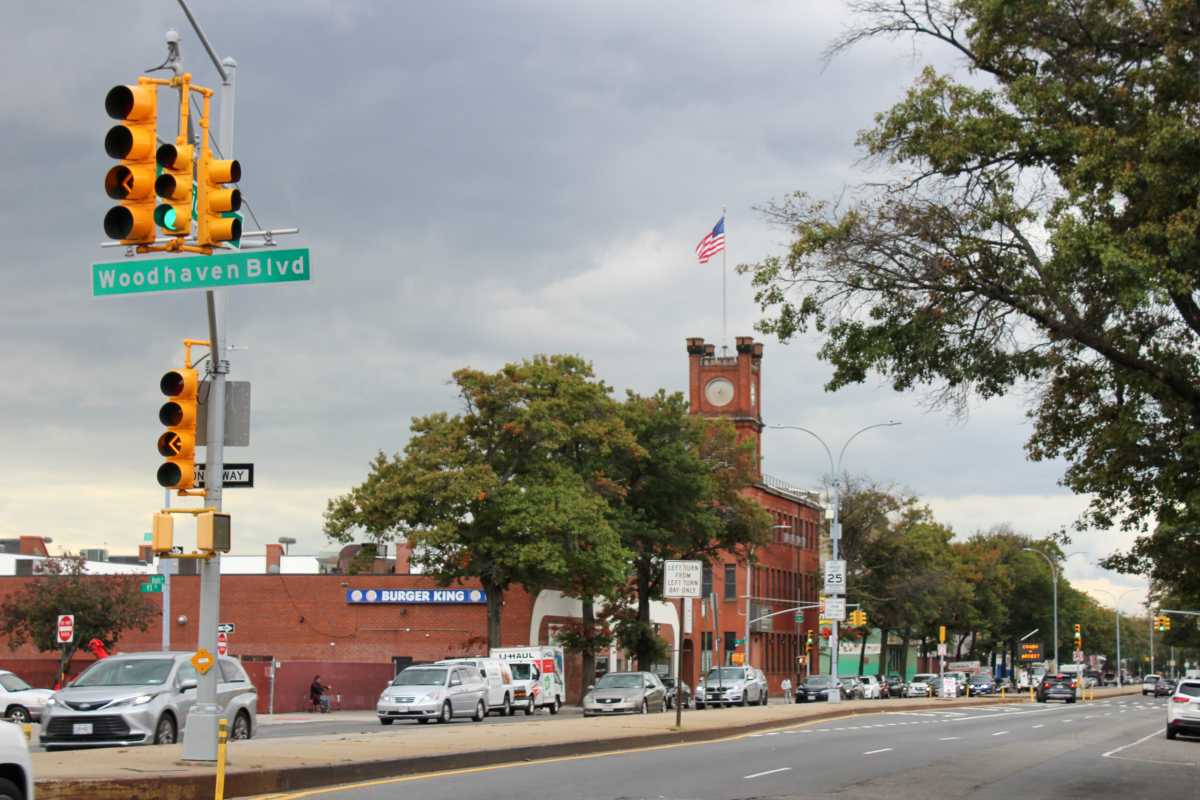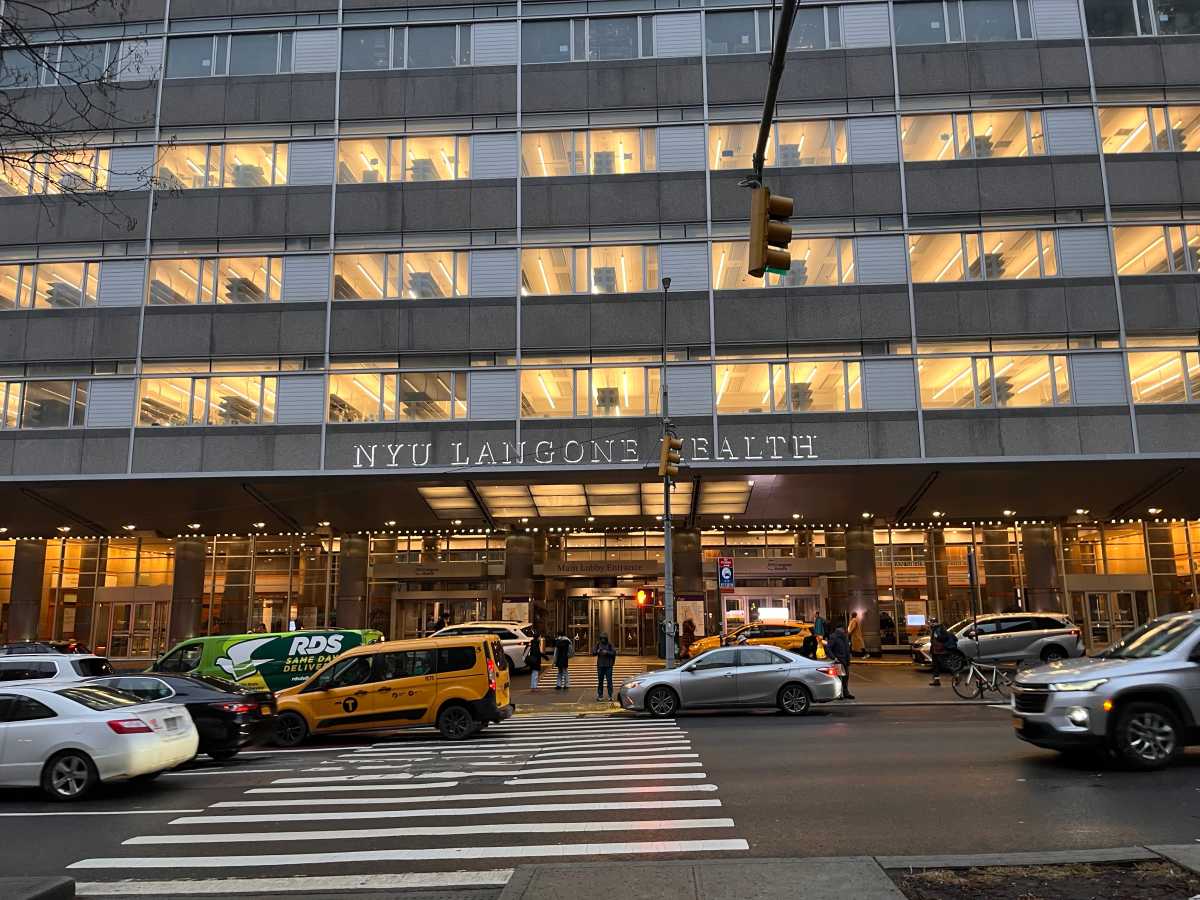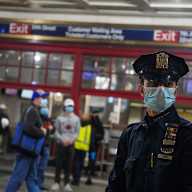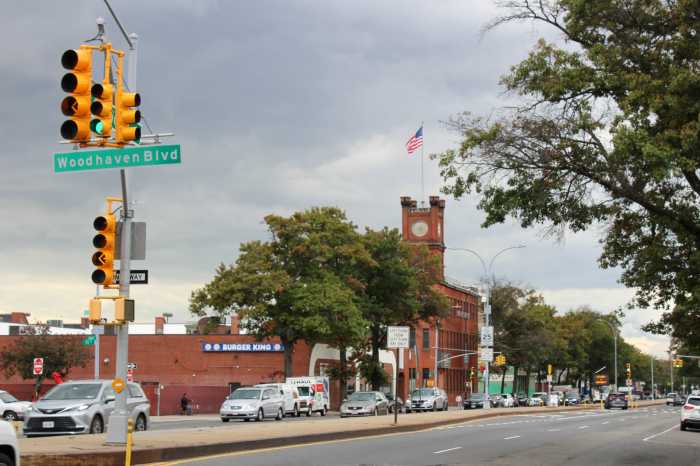Dozens of protestors gathered outside the MTA’s headquarters in Lower Manhattan on Wednesday to take a stand against the agency’s new policy that brings back some alcohol advertising on subways.
Members of community and wellness groups from across the city rallied to stop the MTA from restarting a ban on alcohol-themed ads that was put in place 8 years ago. The MTA board voted on June 25 to allow display ads for adult beverages throughout the city’s transit system.
But concerned health and community advocates want to keep the boozy ads back in 2017, when they were originally banned due to concerns about underage drinking.
“The decision to bring back transit alcohol ads directly harms all New Yorkers,” Robert Pezzolesi, whose group, Interfaith Public Health Network, led the rally, said. “But no group of people will directly suffer its impacts more than youth, commuters of color, and residents recovering from alcohol problems.”
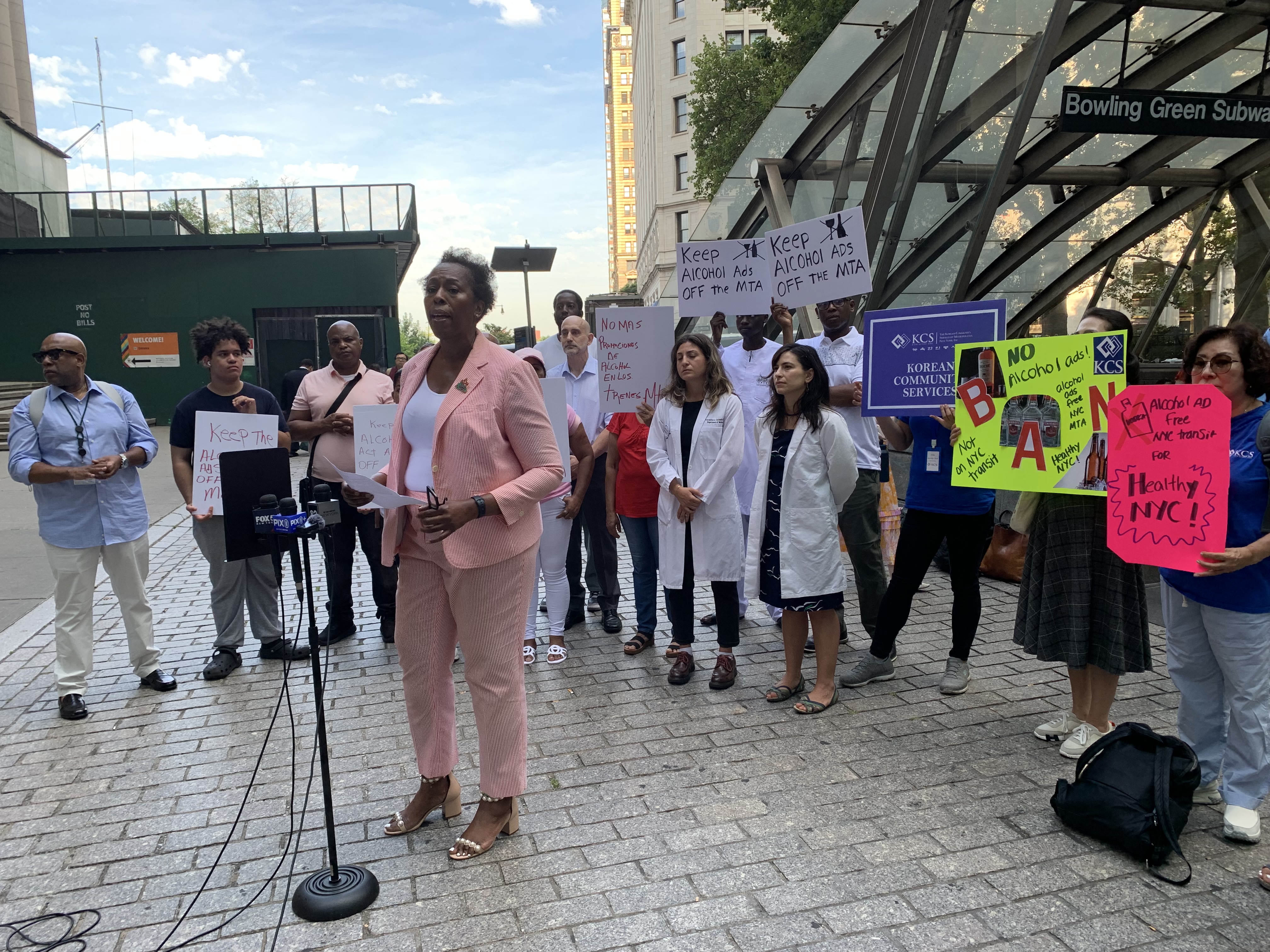
According to Pezzolesi, there is “overwhelming evidence” of alcohol marketing on public transit having a negative impact on communities of color. A 2023 study by medical institutions including Harvard Medical School’s Department of Psychiatry highlighted the disparities in alcohol-related deaths based on race and ethnicity in the United States, with “American Indians/Alaska Natives experiencing the highest burden.”
Pezzolesi said research such as this sheds light on “alcohol’s deadly effects” on community health.
“The MTA knows this,” he said. “But in an effort to recoup meager revenue margins, the Board has chosen to undo its progress and once again risk New Yorkers’ lives with predatory alcohol marketing. We are urging the MTA to protect the health of all riders and restrict these dangerous ads.”
Jessie Lazarus, chair of the MTA’s advertising review committee, explained that a total prohibition of alcohol-related ads has been too broad, leaving the agency to reject potential revenue-generating sources, even if the ad did not blatantly show booze.
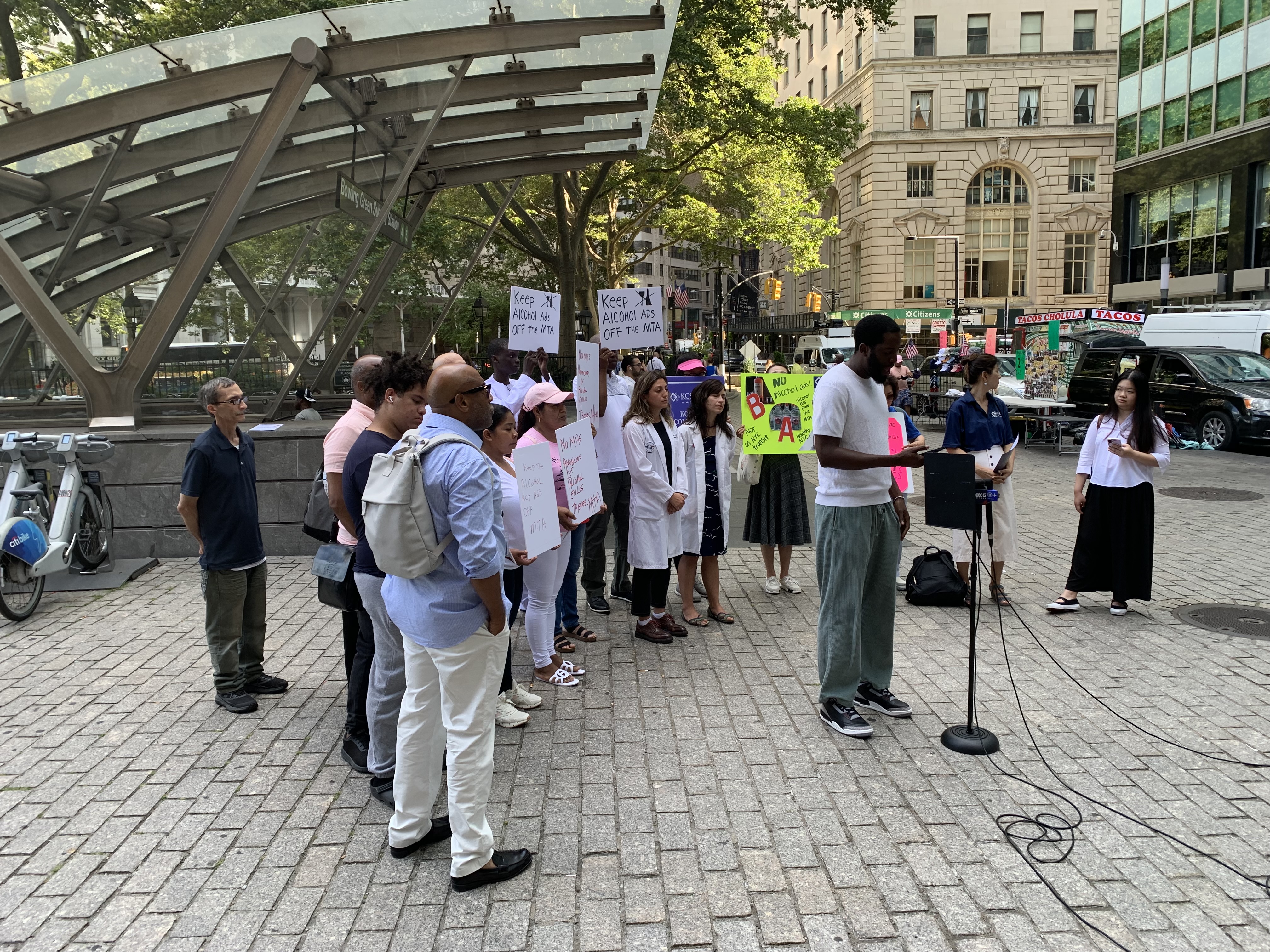
“One of the things that the committee has been observing is that many of the ads that promote eateries or restaurants that include a glass of wine — potentially—on the table, we are spending our time rejecting those ads and tge subsequent revenue that may come from it, or debating whether the content of the glass is grape juice or wine,” she said.
Meanwhile, elected officials, including Bronx Borough President Vanessa Gibson, urged the MTA to reconsider any booze ads on transit.
“Public transit is a lifeline for working families, youth, and vulnerable New Yorkers, and it should not be used as a platform to promote products that pose long-term risks to public health,” she said. “I stand with the Interfaith Public Health Network, medical professionals, and faith leaders in urging the MTA to reinstate its 2017 alcohol advertising ban and prioritize the well-being of the riders it serves.”
